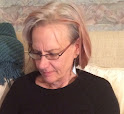It turns out that a standard treatment for thyroid cancer—swallowing radioactive iodine—could cause problems for people other than patients. According to a recent article in The New York Times, “Scientists have estimated that . . . a secondhand dose could exceed an average American’s annual level from all natural sources, and three or four times the safe level recommended for a pregnant woman.”
Patients undergoing radioactive treatment used to be quarantined in the hospital (as they still are in Europe). But in 1997 our Nuclear Regulatory Commission dropped the requirement; now patients go home, encountering any number of vulnerable people along the way, and some check into hotels, where another group of strangers could be exposed.
Not everyone thinks there’s a danger, however, as the Times article reports. "'We’re talking about really small doses,' said Dr. Henry D. Royal, the associate director of nuclear medicine at the Mallinckrodt Institute of Radiology at Washington University. 'Who is it going to harm?' added Dr. Royal, who is on the executive board of the American Nuclear Society."
Who will it harm? How do we know?
This is one of our biggest problems in medical care today: who do we believe? In this case, do we believe a group of scientists and endocrinologists? Or do we trust nuclear medical doctors? Don’t we at least question the recommendation of those most invested in the status quo?
These sorts of questions arise every day. Is the information gleaned on a CT scan worth the dose of radiation received? Is it necessary for an 80-year-old patient to undergo a colonoscopy? Is the long-term use of any drug unequivocally safe?
The answer to all of these questions is muddied by money. In every case, industries and individuals make a bunch of money from the recommended treatment. In many cases the industries that stand to benefit fund the research itself. Conflicts of interest in medicine can make you dizzy.
We’re left with this fundamental problem of our medical care: As long as our health depends on profitability, we will never be the healthy society that we could be.
Thursday, October 28, 2010
Subscribe to:
Post Comments (Atom)

No comments:
Post a Comment